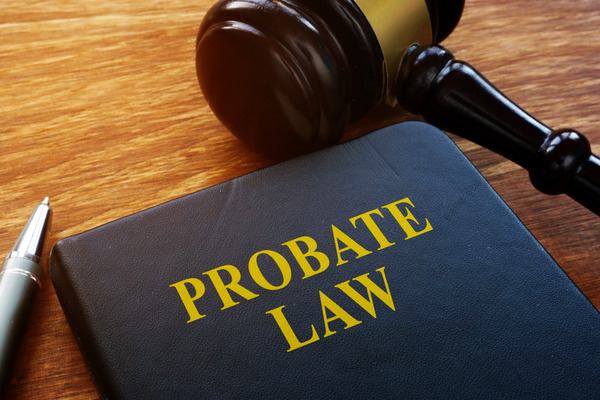Probate Law Attorney

Probate law is a process that helps distribute a deceased person’s assets to their heirs. This process can be complex, and it’s important to have an experienced probate law attorney by your side to help you through it.
One of the hardest parts of life is facing the reality of it ending for our loved ones. This is a difficult topic to talk about, but it’s critical that you and your family know how you want to handle their possessions after they’ve passed. It’s a sensitive subject that we handle with care so that you and your loved ones have everything you need to make the relocation as simple as possible.
I can provide Probate Law services to clients in need. I understand how difficult this time can be for families, and I am here to help you get through it as smoothly as possible. If you need a probate law attorney, please don’t hesitate to contact me today!
What is Probate Law?
The administration and distribution of a deceased person’s assets are made easier by Probate Law. The process of proving the will’s validity in court is known as probate, and it should be concluded within four years after the death. This includes collecting assets, settling any debts, and distributing assets to heirs (if no will) or beneficiaries (if there’s a will). Texas Law allows for one of three different methods of probating an estate based on details of each situation, and the process generally follows the following steps:
1. The administrator must collect assets.
2. The administrator must pay or settle any claims against the estate.
3. The administrator must pay all taxes from assets.
4. The administrator must petition the court to determine heirs (if they have not been determined by the will).
5. The administrator must distribute the estate to the appropriate parties.
These steps can be complex and time-consuming, which is why it’s important to have an experienced Probate Law Attorney by your side.
When there is a Will
Independent Administration
If the deceased person’s will states that the estate should be run independently, the administrator will be permitted to handle all aspects of the inheritance. This means they will be able to sell property, pay debts, close accounts and take other actions on behalf of the estate without having to ask the Court for permission. The administrator can be any adult unless they have been found unsuitable by a judge or state law. Because this would not require as much time and involvement with the Court, this is a less costly process.
Dependent Administration
Dependent Administration is the default rule in Texas, which requires that the probate administration is dependent upon the Court’s supervision and authority. This requires that the administrator requests the Court’s approval for many transactions that are a part of the probate process. This happens most often when there hasn’t been an administrator appointed through a will and when there are a variety of accounts to handle towards the estate. This can be a costly matter though as the Court’s involvement is the most with this administration type.
Muniment of Title
A muniment of title will allow the transfer of estate property to the beneficiaries named in the deceased’s will without the need for estate administration. This is the fastest and most affordable way to probate a will in Texas. There is no need for an appointed administrator in this situation as the will is simply admitted to probate as a substitute for a deed to real estate. This is available only when there are no debts to be paid and no actions to be taken that would require an administrator.
No matter which administration process you encounter, you want to make sure that you are working with a probate law attorney who is experienced and educated in Probate Administration. This will ensure that the right steps are taken with your loved one’s estate, and you can rest peacefully knowing everything is taken care of appropriately.
When there is no Will
If there is no will, then a dependent administration would be required. However, if all heirs or beneficiaries can agree on an administrator and agree to waive the requirement of the dependent administration, then the court can appoint an independent administrator who will manage the estate.
Depending on the assets in the estate, Heirship proceedings may be an option.
How Does Probate Work?
There are several steps involved in the probate process, which can be time-consuming and complex. It is important to have an experienced probate law attorney by your side to help guide you through the process and ensure that everything is done correctly.
Some of the steps involved in the probate process may include:
1) Submitting a Death Certificate
This is the first step in starting the probate process. The death certificate will need to be filed with the court, along with any other required documents.
If you have been named as an executor in a will, or if you are the next of kin, it is important to seek legal counsel as soon as possible to ensure that the probate process is started correctly and in a timely manner.
2) Validating the Will
The will needs to be validated by the court in order to be considered valid. This process can be complex, and it is important to have an experienced Probate lawyer by your side to ensure that everything is done correctly.
If the will is found to be invalid, the estate will then be distributed according to the state’s intestacy laws.
3) Appointing an Executor
If the will is found to be valid, the court will then appoint an executor. The executor’s job is to manage the estate and carry out the wishes of the deceased.
It is important to note that the executor does not have to be a lawyer, but it is recommended that they seek legal counsel to ensure that the estate is managed correctly.
4) Notifying Creditors
Once the executor has been appointed, they will need to notify all creditors of the estate. This includes sending a notice to all known creditors, as well as publishing a notice in a local newspaper.
Creditors have a limited amount of time to file a claim against the estate. If no claims are filed, the estate can then be distributed to the beneficiaries. Probate may be complicated and time-consuming, but it is critical that everything is done correctly which is why it is important to hire a good probate law attorney.
5) Distributing the assets
Once all debts have been paid and all claims have been settled, the executor can then distribute the assets of the estate to the beneficiaries.
This is often one of the most complex parts of the probate process, as there may be multiple beneficiaries with different wishes for how the assets should be distributed.
It is important to have an experienced probate law attorney by your side to ensure that the assets are distributed correctly and in a timely manner.
6) Closing the Estate
Once all assets have been distributed, the executor can then file a petition to close the estate. This is the final step in the probate process, and it is important to ensure that everything is done correctly in order to avoid any issues down the road.
Contact a Probate Law Attorney
If you are in need of assistance with probate law, I am an experienced probate law attorney who can help. I have a deep understanding of the process and can guide you through every step, ensuring that everything is done correctly and efficiently. Contact me today to learn more about how I can help you.
